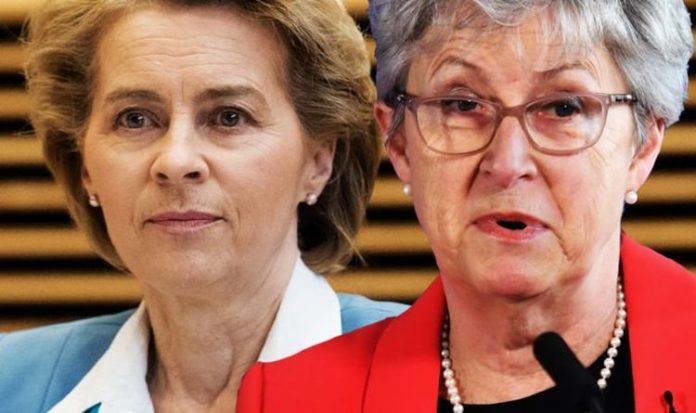The eurozone’s economic rebound from the coronavirus pandemic is losing steam after a few months of improvement, according to a survey of business activity. The IHS Markit flash composite purchasing managers’ index for the euro area fell to 51.6 in August, down from 54.9 in July. According to a Reuters poll, even if a reading above the 50 mark indicates that a majority of businesses reported an expansion in activity, the reading undershot the expectations of most economists, who on average had expected activity to plateau.
The disappointing data hit the euro in early trading on Friday and called into question the strength of Europe’s third-quarter economic recovery.
The recent resurgence of coronavirus infections in many European countries to levels not seen since May has triggered fresh quarantine requirements and localised lockdowns, raising doubts over the sustainability of the recovery.
The discouraging data comes a month after EU leaders struck a deal on a huge coronavirus recovery package. The €750billion (£677billionn) coronavirus fund will be used as loans and grants to the countries hit hardest by the virus.
The remaining money represents the EU budget for the next seven years.
As many wonder whether the measures will ultimately deepen the bloc’s economic integration or cause its demise, in an exclusive interview with Express.co.uk, former Labour MP and prominent Brexiteer Gisela Stuart claimed the package was a necessary step for the future of the bloc.
Ms Stuart, who has recently been awarded a peerage, said two things will have to happen if the EU wants to survive.
She explained: “The euro countries have to deeply integrate, the other ones don’t.
“Now, with the Recovery Fund, the EU is slowly edging to creating debt.
JUST IN: Insider predicts FAILURE of Cummings’ Whitehall revolution
“And I think it is, in the long term, a necessary step if the EU wants to become a true federal state
“These are just the consequences of the single currency. And for the EU, it is an important step in the right direction.”
Ms Stuart added: “Whether countries like Poland will want this… that is the crucial question.
“Poland is part of the EU but not part of the euro.
“It is going to be something they have to think about and that could complicate things for the bloc.”
The concept of a “two-speed” Europe is not new, but has been debated for years in Brussels as a way to solve some institutional issues.
The idea is that the more members there are in the bloc, the more difficult it becomes to reach consensus on various topics, and the less likely it is that all would advance at the same pace in various fields.
DON’T MISS:
Gisela Stuart explains why Lords can be reformed but EU can’t [EXCLUSIVE]
Australia PM’s brutal assessment of Theresa May [INSIGHT]
Philip Hammond’s Brexit lobster lunch with George Osborne exposed [REVEALED]
In March 2017, after the Brexit vote, the idea of having different parts of the EU integrating at different levels and space went through a revival.
Encouraged by French president Emmanuel Macron, former European Commission president Jean-Claude Juncker released a five-point view of possible courses, looking forward to the year 2025.
The points, among which Mr Juncker expressed no preference, “range from standing down from policing of government financing of companies, for example, to a broader pullback that would essentially strip the EU back to being merely a single market”, according to one report.
The updated possibilities would entail member states or groups of countries adopting different levels of participation with the union.
The European Commission was approaching a March meeting of the 27 members in Rome and Mr Juncker’s paper addressed the options that “once invited scorn from convinced Europhiles” and seemed maybe even to have some backing “of lifelong federalists” like the President.
Despite receiving backing, the idea was later dropped.







